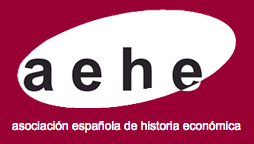Convergence of public and private agendas in the shaping of the early modern Hispanic Monarchy: an economic-based approach
DOI:
https://doi.org/10.33231/j.ihe.2020.08.001Palabras clave:
actores no estatales, proceso de construcción del Estado, instituciones, monarquía hispánica, N23, 043Resumen
Este artículo revisa el proceso de la construcción del estado en la monarquía hispánica a mediados del siglo xvi a través del análisis de las relaciones en grandes financieros genoveses y emprendedores privados castellanos en el mercado internacional de lana. El artículo defiende que estos dos grupos sociales participaron en la construcción del Estado porque jugaron un papel decisivo en su formación tras la primera consolidación de deuda
de Felipe II en 1557. Los resultados de esta investigación demuestran que actores no estatales organizados como instituciones informales podían participar mejor en el proceso de construcción estatal que instituciones formales en grandes sistemas gubernativos. Este trabajo complementa así a la literatura reciente sobre la descentralización de poder efectivo en estados de la era moderna temprana.
Descargas
Descargas
Publicado
Cómo citar
Número
Sección
Licencia
Derechos de autor 2020 Alberto Sánchez Camacho

Esta obra está bajo una licencia internacional Creative Commons Atribución-NoComercial-SinDerivadas 4.0.
Aquellos autores/as que tengan publicaciones con esta revista, aceptan los términos siguientes
- Los autores/as conservarán sus derechos de autor y garantizarán a la revista el derecho de primera publicación de su obra, el cuál estará simultáneamente sujeto a la Licencia de reconocimiento de Creative Commons Reconocimiento-No comercial-Sin obra derivada 4.0 Internacional que permite a terceros compartir la obra siempre que se indique su autor y su primera publicación esta revista, y no permite hacer uso comercial de la misma ni tampoco obras derivadas.
- Los autores/as podrán adoptar otros acuerdos de licencia no exclusiva de distribución de la versión de la obra publicada (p. ej.: depositarla en un archivo telemático institucional o publicarla en un volumen monográfico) siempre que se indique la publicación inicial en esta revista.
Plagio y fraude científico
La publicación de un trabajo que atente contra los derechos de propiedad intelectual será responsabilidad de los autores/as, que serán los que asuman los conflictos que pudieran tener lugar por razones de derechos de autor. Los conflictos más importantes pueden darse por la comisión de plagios y fraudes científicos.
Se entiende por plagio:
- Presentar el trabajo ajeno como propio.
- Adoptar palabras o ideas de otros autores sin el debido reconocimiento.
- No emplear las comillas u otro formato distintivo en una cita literal.
- Dar información incorrecta sobre la verdadera fuente de una cita.
- El parafraseo de una fuente sin mencionar la fuente.
- El parafraseo abusivo, incluso si se menciona la fuente.
Las prácticas constitutivas de fraude científico son las siguientes:
- Fabricación, falsificación u omisión de datos y plagio.
- Publicación duplicada.
- Conflictos de autoría.





